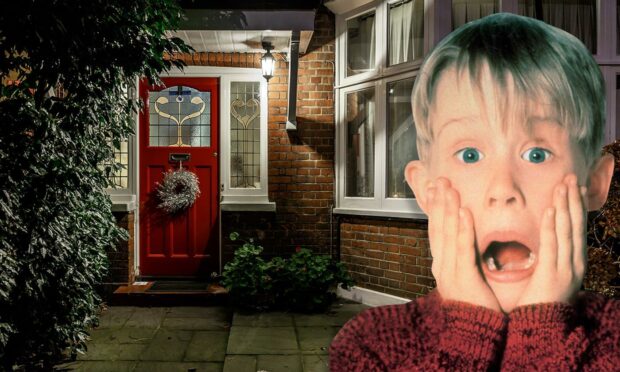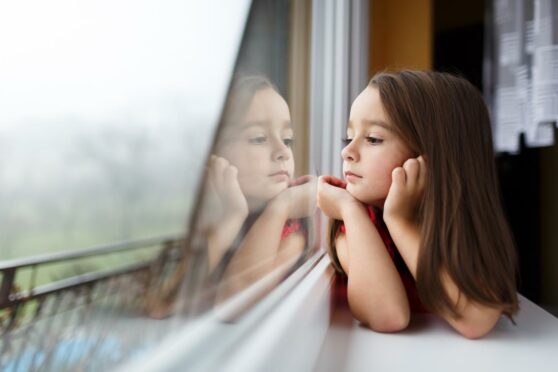“He’ll be fine; he’s 10, almost 11,” my wife said.
It’s true that our oldest is not the wee boy he once was. Moreover, he’s always been the ‘sensible one’.
With our middle child at a friend’s house and our youngest in the buggy, we just wanted to stretch our legs for an hour.
However, he’d never been ‘home alone’ before and I was far from sure we were doing the right thing.
Deferring to my wife’s – invariably better – judgement, we left him in front of the Xbox and had our walk.
Returning an hour later, he hadn’t moved from the Xbox. He’d barely noticed we’d been gone.
So far, so good. But had we broken the law? It got me thinking, anyway.
Where does the law stand on what age children can be left alone?
At a birthday party for a friend’s child the next day, I asked him for his thoughts. What will he do when his five-year-old is 10?
“No, absolutely not, you can’t leave a 10-year-old at home.”
I asked his wife. She thought it was fine to leave a child that age at home, as long as it wasn’t all day, or overnight.
Having broached the subject with other parents since, views appear to be split 50-50.
And nobody seems to know where the law stands.
Being a journalist, I asked the government.
As far as the law is concerned, leaving children at home is something of a grey area.
Scottish Government guidance states: “There is no law about what age your child can be left at home.”
It refers to National Society for the Prevention of Cruelty to Children (NSPCC) recommendations that:
- Babies, toddlers and very young children should never be left alone.
- Children under 12 are rarely mature enough to be left alone for a long period of time.
- Children under 16 shouldn’t be left alone overnight.
Parental judgement comes first
The NSPCC also says that “while every child is different, we wouldn’t recommend leaving a child under 12 years old home alone, particularly for longer periods of time.”
It adds: “Every child matures differently, so it would be almost impossible to have a ‘one size fits all’ law.”
Ultimately, it’s a question of parental judgement rather than the law.
According to the Scottish Government “you shouldn’t leave a child on their own if they’ll be at risk. You can be fined or sent to prison if you put your child at risk by leaving them alone.”
What is meant by ‘at risk’?
This isn’t clear from the guidance available online, so I asked NSPCC Scotland.
Test the waters with trial runs
A spokeswoman said it boiled down to taking all possible steps to make the home safe.
She gave examples such as keeping sharp objects and medicines out of reach, and ensuring fire alarms are working and that their child can get out if they need to.
She added: “Children should also know how to contact a trusted adult if they need help, and to call 999 in an emergency.
“Talking through scenarios with your child about what to do in different situations, such as if they hurt themselves or a stranger knocks on the door, can help a parent judge whether their child is ready.
“If a parent is still not sure, they can do trial runs by going out for a few minutes and then gradually build up the length of time they leave them alone.
“But it is important for parents and carers to remember that if a child is unhappy about being left at home alone then they should not be.”
Parents should also be aware of the dangers of social media and unrestricted internet access.
If in doubt, take them out
Denise Laverty is a family lawyer at Gilson Gray. She said parents are best placed to judge what is right for their child.
“As a parent knows their own child better than anyone else, then quite rightly it is left to parents to judge when a child is mature enough to be left alone,” she said.
“But clearly the risk of leaving a child alone while you pop to the shop is different from going abroad.
“However, the period of time away from the house is not the only factor to be considered.
“Obviously babies, toddlers and very young children should never be left alone.
“Children under 12 are rarely mature enough to cope in an emergency and shouldn’t be left alone for a long period of time.
“When leaving a younger child with an older sibling, think about what may happen if they were to have a falling out. Would they both be safe?
“Ultimately, a child should never be left at home alone if they do not feel comfortable with it, regardless of their age.
“If you, or your child, are at all unsure about leaving them home alone it is always best to be on the safe side and arrange a babysitter or childminder.”
Try to think like your child
Parents are confused in part because existing guidance, such as that provided by the NSPCC, doesn’t give a definition of what ‘a long period of time’ is.
Ms Laverty added: “My advice to any parent would be to put themselves in the shoes of their own child.
“Ask yourself, ‘what would my child consider to be a long period of time?’
“For some children that may be 30 minutes, and for others it could be a few hours.
“I think the important thing for a parent to acknowledge is that it is the child whose welfare is the paramount importance. So it is what the child would consider too long, not what the parent would.”
More from the Schools and Family team
First Class 2021: Primary 1 photos from schools across the north and north-east
Top of the world: What can Scottish schools learn from China?
Hard graft and tears: St Cyrus couple look back on 40-year fostering career



